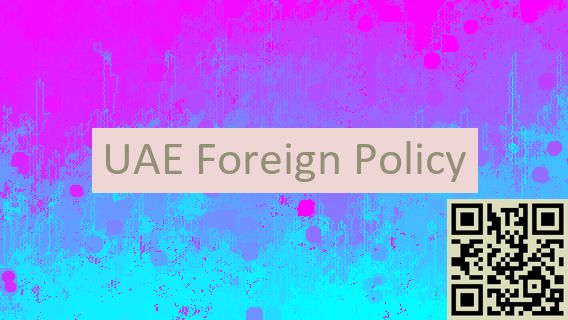UAE Foreign Policy
The foreign policy of the United Arab Emirates (UAE) is characterized by a strong commitment to regional stability and international cooperation. The UAE is a major non-NATO ally of the United States and is a member of the United Nations, the Gulf Cooperation Council (GCC), and the Arab League. The UAE has a long history of international engagement, and its foreign policy has been shaped by its geopolitical environment.

The UAE’s foreign policy is based on three main pillars: regional and international security, economic development, and cultural and diplomatic engagement. The UAE is committed to maintaining regional stability and has taken a leading role in promoting cooperation among its Gulf neighbors. It is also a key ally of the United States in the Middle East and has been an active participant in international peacekeeping and conflict resolution efforts.
The UAE also seeks to foster economic development through bilateral and multilateral trade agreements, as well as through investments in countries around the world. The UAE is a major economic player in the region and has invested heavily in the development of its own infrastructure and the infrastructure of its neighbors. The UAE has also played a key role in facilitating investment in the region through its strong ties with international financial institutions and its involvement in regional investment initiatives.

The UAE has also sought to strengthen its cultural and diplomatic ties with other nations through its foreign policy. The UAE has established embassies in more than 100 countries and is a member of numerous international organizations. The UAE has also hosted numerous international summits and conferences, including the World Economic Forum and the Dubai International Financial Centre. This has enabled the UAE to build strong relations with countries across the globe and to promote its own interests.
Finally, the UAE has sought to promote regional stability through its foreign policy. The UAE has worked closely with its Gulf neighbors to resolve regional disputes and promote regional security. The UAE has also sought to strengthen its ties with other Middle Eastern countries and has provided assistance to countries in the region in times of crisis.
The UAE’s foreign policy is a reflection of its commitment to regional stability and international cooperation. The UAE has a long history of international engagement, and its foreign policy has been shaped by its geopolitical environment. The UAE is committed to maintaining regional stability, promoting economic development, strengthening its cultural and diplomatic ties, and working to promote regional security. The UAE’s foreign policy is a testament to its commitment to international cooperation and its desire to foster global peace and prosperity.

Summary
The UAE is a major non-NATO ally of the United States and is a member of the United Nations, the Gulf Cooperation Council (GCC), and the Arab League. The UAE’s foreign policy is based on three main pillars: regional and international security, economic development, and cultural and diplomatic engagement. The UAE is committed to maintaining regional stability, promoting economic development, strengthening its cultural and diplomatic ties, and working to promote regional security.
#connect #foreign #unite #external #uae #country #state #constancy #stability #policy #done #international #regional #alien #growth #countries #through #exploitation #united #cooperation #economic #development #internationalforeign #area #unify #extraneous #nation



